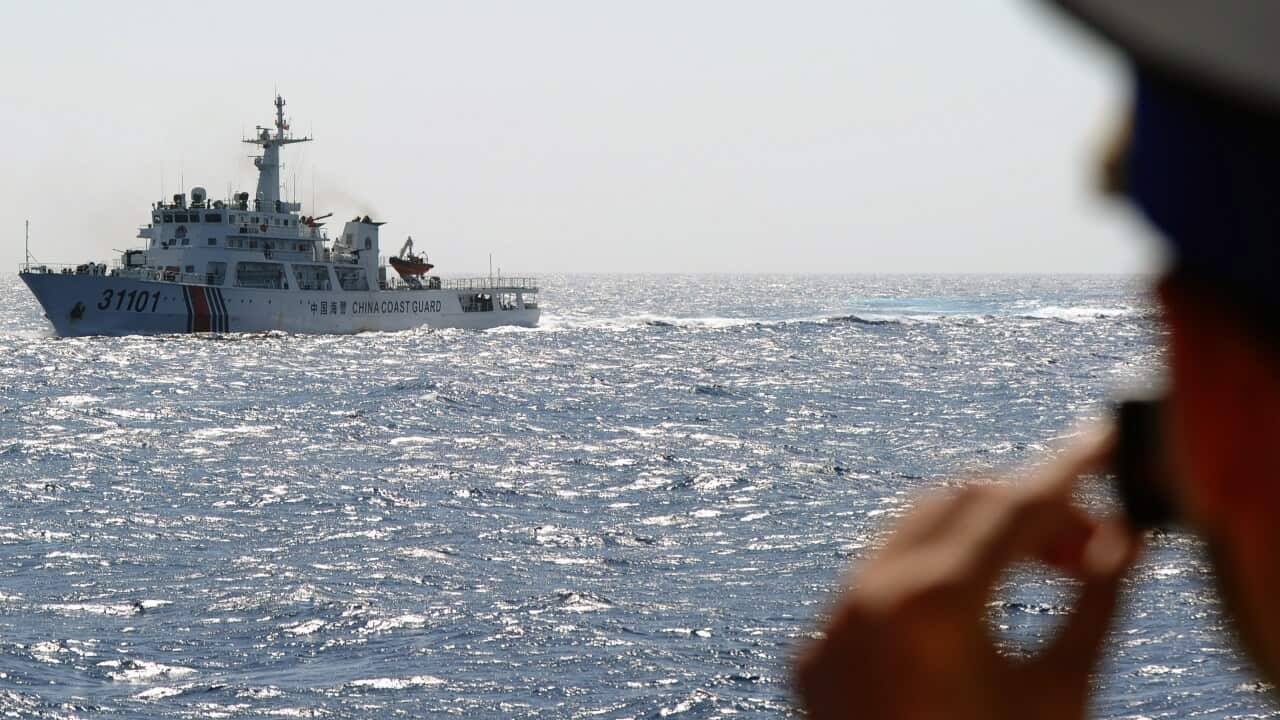China's reputation and ambitions of becoming a world leader will suffer if it ignores an international court ruling on the South China Sea, Foreign Minister Julie Bishop warns.
China has vowed to ignore the ruling by the Permanent Court of Arbitration in The Hague, which unanimously ruled in favour of the Philippines, declaring China had no historical title over the South China Sea.
Ms Bishop has called on all parties to respect the ruling, describing it as final and legally binding.
She's warned China's reputation would suffer if it ignored the decision, insisting friendly relations with the international community were crucial to its rise.
"To ignore it would be a serious international transgression," she told ABC radio on Wednesday.
"There would be strong reputational costs."
Ms Bishop said she expected to speak with her counterparts in China and the Philippines in coming days and expected the ruling to be discussed at the upcoming ASEAN and East Asia Summit meetings in mid-July.
She insists Australian ships and aircraft will continue to exercise freedom of navigation and overflight rights but refused to comment on specific details of activities.
But Labor defence spokesman Stephen Conroy accused the Turnbull government of "pretending" to exercise freedom of navigation in the region.
"I've questioned all our defence officials at Senate estimates and they've made it clear they are not authorised to engage in freedom of navigation exercises in the South China Sea," he told ABC radio.
Given China was rejecting Tuesday night's ruling, it was time Australia demonstrated support for international law by conducting freedom of navigation exercises in the South China Sea, Senator Conroy said.
He dismissed concerns the action could inflame tensions, insisting China's actions had become more aggressive and "bullying" in recent weeks.
"All parties should take a deep breath in light of this ruling."
"Unfortunately one of them is continuing not to."
The court ruled that the 1982 UN Convention on the Law of the Sea superseded China's 69-year-old claim to roughly 85 per cent of the disputed territory.
China boycotted the hearing, disputing the court's jurisdiction to hear the case.
Even before the ruling was handed down, China rejected the decision.
"No matter what kind of ruling is to be made, Chinese armed forces will firmly safeguard national sovereignty, security and maritime interests and rights, firmly uphold regional peace and stability, and deal with all kinds of threats and challenges," China's Defence Ministry said in a statement shortly before the ruling was made public.











